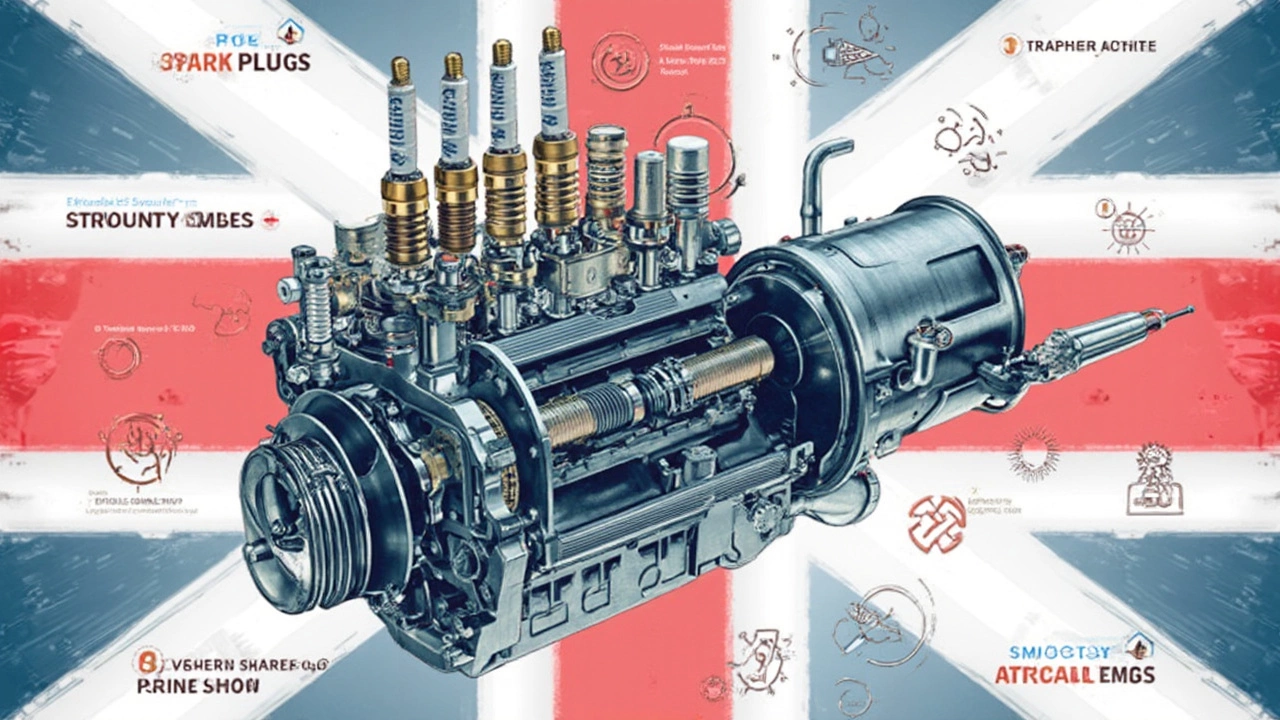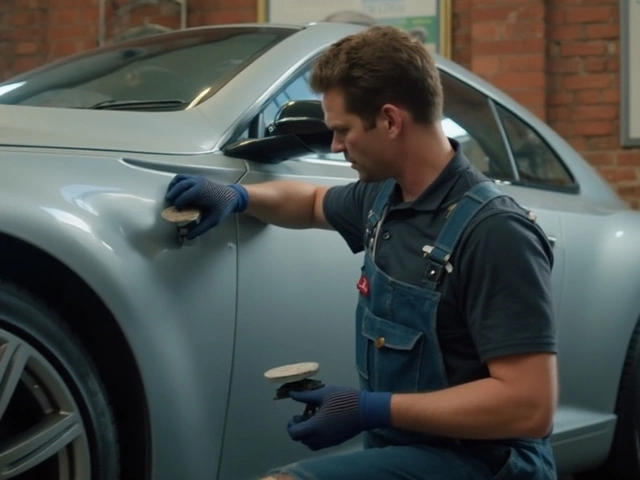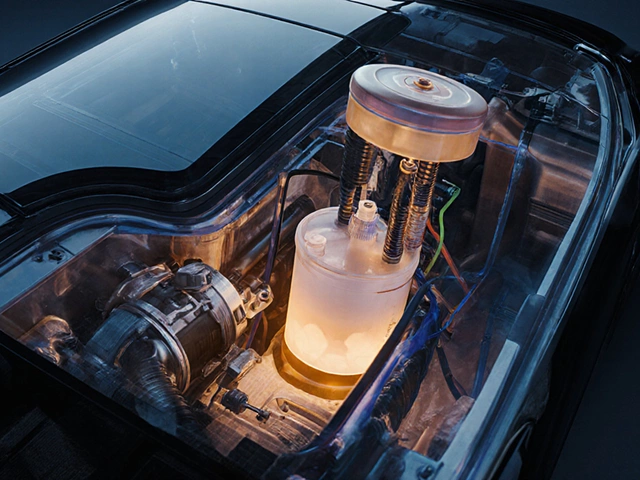Ever wondered what could happen if you just ignore those spark plugs in your engine? It's easy to overlook them, isn't it? They're small and hidden away, so who cares, right? Well, it turns out, a lot can go wrong if you don't pay attention to them. Your car might start to sound like it's coughing or sputtering because worn-out spark plugs can cause engine misfires. This isn't just annoying—it can actually damage your engine over time.
When your engine isn't firing as it should, you might also notice your fuel economy taking a nosedive. Imagine spending way more on gas than you used to without really knowing why. It's a real bummer and no one wants to throw money down the drain, especially on something preventable. Regularly checking and replacing spark plugs can keep things running smoothly and efficiently, saving you cash in the long haul.
- Why Spark Plugs Matter
- Signs Your Spark Plugs Are Failing
- Consequences of Neglecting Spark Plug Replacement
- When and How to Replace Them
- Cost vs. Benefits of Timely Replacement
Why Spark Plugs Matter
Spark plugs are like the tiny matchsticks that ignite the fuel-air mixture in your engine. Without them, your car's engine wouldn't even start. They're so crucial yet often ignored until problems arise. These components are directly responsible for creating the spark that makes your engine run smoothly and efficiently.
Without well-functioning spark plugs, your car can face issues like inefficient combustion, leading to less power and poor fuel economy. Think of it like this: if your engine is a concert, spark plugs are like the conductor, making sure every cylinder fires off at the right time.
Another reason spark plugs are important is because they help regulate the engine temperature. Too hot, and you risk overheating; too cold, and the engine can become less efficient. This balance contributes to the long life of your engine.
Here’s a simple breakdown of why these small parts are crucial:
- Fuel Efficiency: Good spark plugs help maximize engine performance and fuel economy. Swapping out old ones can improve fuel mileage significantly, keeping more money in your pocket.
- Dependable Starts: Fresh spark plugs ensure each start-up is smooth and reliable, preventing those dreadfully unpredictable mornings when your car won't start.
- Emissions Control: Well-performing spark plugs contribute to a reduction in harmful emissions, making your car a tad bit kinder to the planet.
Though small, spark plugs do more than you might think, ensuring that every drive is smooth and every drop of gas is well-used.
Signs Your Spark Plugs Are Failing
Alright, so let's get into how you can tell if your spark plugs are waving the white flag. It's not as mysterious as it sounds; there are plenty of clues your car gives you if something's up. First off, if your engine seems to stumble when you accelerate or has a rough idle, it's often a sign. This happens because the plugs aren't firing properly and the engine isn't getting the spark it needs.
Another obvious hint is trouble starting your car. Imagine you turn the key and the engine cranks longer than usual or takes a couple of tries to kick into life. That's a red flag. It could be tired spark plugs not creating the required spark.
You might also notice that your car is getting greedy with fuel. If you're gassing up more than usual but not traveling further, blame could go to faulty spark plugs. Worn plugs mean incomplete combustion, which in turn uses more fuel.
- Engine misfire: Frequent misfires while driving.
- Poor fuel economy: Noticeably increased trips to the gas station.
- Hard starts: Engine takes longer to start or requires multiple attempts.
- Rough idling: Car feels shaky or vibrates excessively when idle.
- Check engine light: It can turn on due to failing spark plugs.
Another biggie is the dreadful check engine light turning on. While that can mean a bunch of things, spark plugs are a common cause. It's like your car's way of giving you a heads-up.

Consequences of Neglecting Spark Plug Replacement
Skipping out on changing your spark plugs might not seem like a big deal at first, but it can lead to a series of headaches you really don't want. One of the first things you'll probably notice is your engine misfiring. It's as if your car has suddenly developed a bad cough. Each misfire is a sign that your engine's burning fuel inefficiently, which can cause permanent damage if ignored.
This inefficiency doesn't just affect how smoothly your vehicle runs; it also hits your wallet hard. Expect your fuel economy to plummet. You'll find yourself at the gas station more often, wondering why your car is drinking so much fuel. Not exactly what you had in mind for your budget, right?
Let's not forget about starting trouble. Bad spark plugs make it tougher for your engine to start up. On some cold mornings, you might end up sitting there in frustration, trying to get your car to cooperate. It's not just inconvenient; it can also put extra strain on your car's starter motor and battery.
Overlooking spark plug issues can also lead to rough idling and slow acceleration. Ever felt like your car is dragging its feet when you hit the gas? That's partially because of faulty spark plugs. It's like trying to run a marathon with a pebble in your shoe.
And then there’s the engine light. That dreaded thing starts glowing on your dashboard, adding another layer of stress to your daily drive. All of these issues combined can eventually lead to more extensive engine repairs. Those repairs aren't cheap since they'll likely involve other parts of your engine that were compromised due to neglected spark plugs.
The simple act of replacing your spark plugs on schedule can help you steer clear of these pricey and annoying problems. Keeping this small component in good shape ensures your engine stays happy and your car rides smoothly.
When and How to Replace Them
Figuring out when to replace spark plugs isn't rocket science, but it requires paying attention to your car's signals. Typically, you should check them every 30,000 miles, though some modern vehicles and plugs can stretch that to about 100,000 miles. Still, it’s good practice to inspect them regularly, especially if you notice any trouble signs like rough idling or delayed starts.
Now, replacing these tiny components is something you can tackle yourself with a little patience and the right tools. Here’s a straightforward guide:
- Gather Your Tools: You’ll need a spark plug socket, a ratchet, an extension bar, and maybe a torque wrench. Having these makes the job way smoother.
- Let the Engine Cool: Always start with a cool engine. It’ll save your knuckles and your sanity.
- Locate and Remove the Old Plugs: Find your spark plugs. Depending on your car’s make and model, this can be easy or a mild headache. Use your socket and extension bar to unscrew the old ones carefully.
- Check for Issues: Take a peek at the old plugs for any unusual wear. This can clue you into other underlying engine problems.
- Install New Spark Plugs: Insert the new plugs by hand first to avoid cross-threading, then tighten with your socket. If you’re using a torque wrench, check your car’s manual for the proper torque specs.
- Reconnect Wires: Secure the spark plug wires or ignition coils back in place. A tight fit ensures optimal performance.
It’s not just about swapping old for new; it’s ensuring that your car runs like it should. Taking the time to replace your spark plugs can make a noticeable difference in how your engine purrs and how much you spend at the pump. Want to know if you’re doing it right? Look for smoother acceleration and fewer trips to the gas station—those are your green flags.

Cost vs. Benefits of Timely Replacement
You might be thinking, "Is it really worth spending money on new spark plugs when my car's still running?" Well, let's break it down. Not dealing with them might seem cheaper upfront, but it can cost you more in the long run. Here's how.
For starters, a fresh set of spark plugs usually costs between $16 to $100, depending on your car and the type of plugs. Compare that with the potential cost of repairing damage caused by an engine that's been misfiring—a bill that could run into the thousands. Ouch, right?
Now, think about how your fuel efficiency takes a hit when engine performance declines. If your engine's not firing just right, it guzzles more fuel, meaning more trips to the gas station. Multiply those extra gas costs over months or years, and you're looking at a significant chunk of change slipping out of your wallet.
Besides saving money, regular plug checks mean you get better vehicle reliability. Nobody enjoys being stranded by the roadside with a car that won't start because of a neglected spark plug. A routine replacement helps avoid such nasty surprises.
Take a look at this cost comparison:
| Expense Type | Cost Range (USD) |
|---|---|
| Spark Plug Replacement (per set) | $16 - $100 |
| Fuel Costs Rises from Inefficiency (annually) | $100 - $500 |
| Engine Repair Costs from Misfires | $300 - $2000+ |
So, in simple terms: a little spent now on vehicle care can save you big bucks and headaches down the line. All it takes is a little attention to these tiny but mighty components.






